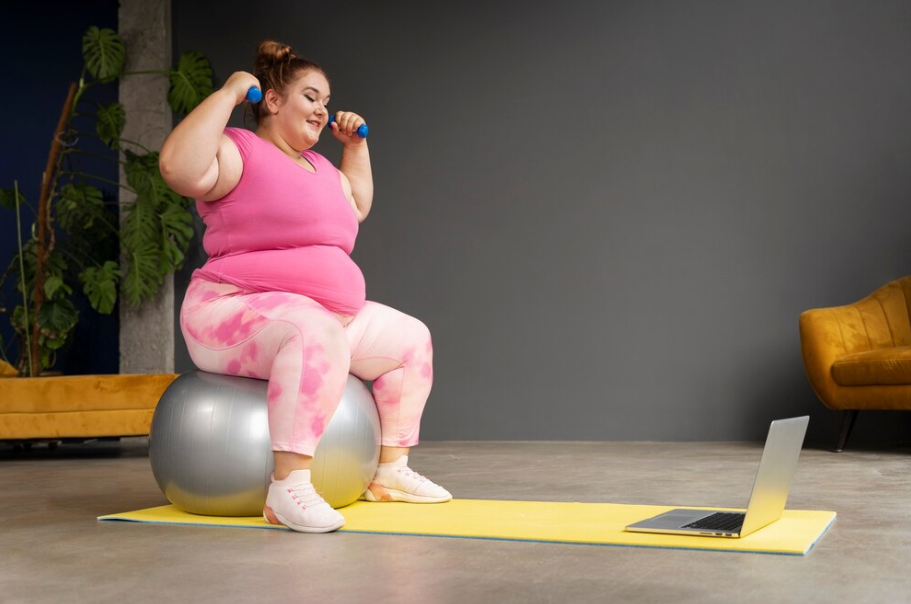When it comes to weight loss, the age-old question remains: What’s the best time to work out for weight loss? While some swear by early morning runs, others find evening gym sessions more effective. The truth is, the best time to work out depends on your goals, body, and schedule.
However, scientific research offers valuable insights into how workout timing can influence fat burning, metabolism, and overall weight loss. Let’s explore the benefits of morning and evening workouts to help you determine the best time to exercise for shedding those extra pounds.
Does Workout Timing Really Matter for Weight Loss?
Before diving into specific times, it’s essential to understand the role of workout timing. Weight loss ultimately depends on the calories you burn versus the calories you consume. However, the timing of your workouts can affect factors such as:
- Metabolism: Exercise boosts your metabolic rate, helping you burn calories even after your workout.
- Hormonal Activity: Hormones like cortisol and testosterone fluctuate throughout the day, impacting fat-burning efficiency.
- Energy Levels: When you feel most energized, you’re more likely to exercise intensely, which can enhance calorie burn.
Morning Workouts: Benefits and Drawbacks
Benefits of Morning Workouts
- Boosts Metabolism All Day:
Morning workouts can kickstart your metabolism, leading to increased calorie burn throughout the day. This phenomenon, known as the afterburn effect, means your body continues burning calories even at rest. - Consistency and Routine:
Exercising in the morning can help establish a routine, making it easier to stay consistent. You’re less likely to skip a workout due to last-minute meetings or social events. - Improved Appetite Regulation:
Studies suggest that morning exercise may help regulate hunger hormones like ghrelin, reducing cravings and overall calorie intake. - Fat Burning on an Empty Stomach:
If you exercise before breakfast, your body may rely more on stored fat for energy, which could enhance fat loss over time.
Drawbacks of Morning Workouts
- Lower Physical Performance:
Early in the morning, your muscles may be stiff, and your energy levels lower, potentially affecting workout intensity. - Sleep Trade-Offs:
Waking up earlier to exercise might compromise sleep if you’re not going to bed earlier to compensate.
Evening Workouts: Benefits and Drawbacks
Benefits of Evening Workouts
- Peak Physical Performance:
Your body temperature, strength, and endurance peak in the late afternoon or evening, allowing for more intense workouts. - Stress Relief:
Evening workouts provide an excellent opportunity to unwind and release the day’s stress, which can also aid in better sleep for some individuals. - Greater Flexibility and Energy:
Your muscles are more warmed up by the evening, reducing the risk of injury and enhancing performance.
Drawbacks of Evening Workouts
- Risk of Disrupted Sleep:
Intense evening exercise may interfere with sleep quality for some, especially if done close to bedtime. - Time Management Challenges:
Evening workouts can sometimes conflict with family, social, or work commitments, making consistency harder for some people.
Personalized Approach: Choosing What Works for You
While both morning and evening workouts have benefits, the best time to exercise for weight loss is the time you can stick to consistently. Consider these factors when choosing your workout time:
- Schedule: Select a time that aligns with your daily responsibilities.
- Energy Levels: Pay attention to when you feel most energetic and motivated.
- Consistency: A consistent routine will yield better results than sporadic workouts at “optimal” times.
Tips to Maximize Weight Loss Regardless of Timing
No matter when you work out, these strategies can enhance your weight loss journey:
- Combine Cardio and Strength Training:
Cardio burns calories, while strength training builds muscle, increasing your resting metabolic rate. - Maintain a Balanced Diet:
Exercise alone won’t lead to significant weight loss without proper nutrition. Focus on whole, nutrient-dense foods and maintain a calorie deficit. - Stay Hydrated:
Dehydration can reduce workout performance and calorie burn, so drink plenty of water. - Prioritize Sleep and Recovery:
Quality sleep aids muscle recovery and regulates hunger hormones, supporting your weight loss efforts.
FAQs: Common Questions About Workout Timing
Q: Is it better to work out on an empty stomach for weight loss?
A: Fasted workouts (e.g., exercising before breakfast) may enhance fat burning, but this approach isn’t ideal for everyone. Listen to your body and prioritize consistent exercise.
Q: How long should I work out to lose weight effectively?
A: Aim for at least 150 minutes of moderate-intensity exercise or 75 minutes of vigorous exercise per week, as recommended by the CDC.
Q: Can night workouts affect sleep quality?
A: Intense evening workouts may disrupt sleep for some individuals. However, light-to-moderate exercise in the evening can promote relaxation and better sleep.
Q: Which is better for weight loss, cardio or strength training?
A: A combination of both is ideal. Cardio burns calories during the workout, while strength training builds muscle, which increases calorie burn at rest.
Conclusion
So, what’s the best time to work out for weight loss? The answer lies in your lifestyle, preferences, and ability to stay consistent. Morning workouts can boost metabolism and establish a routine, while evening workouts may enhance performance and serve as a stress reliever.
Ultimately, the most effective workout is the one you can commit to regularly. Pair your chosen workout time with a balanced diet, quality sleep, and an active lifestyle to achieve your weight loss goals.
Start today—your future self will thank you!
